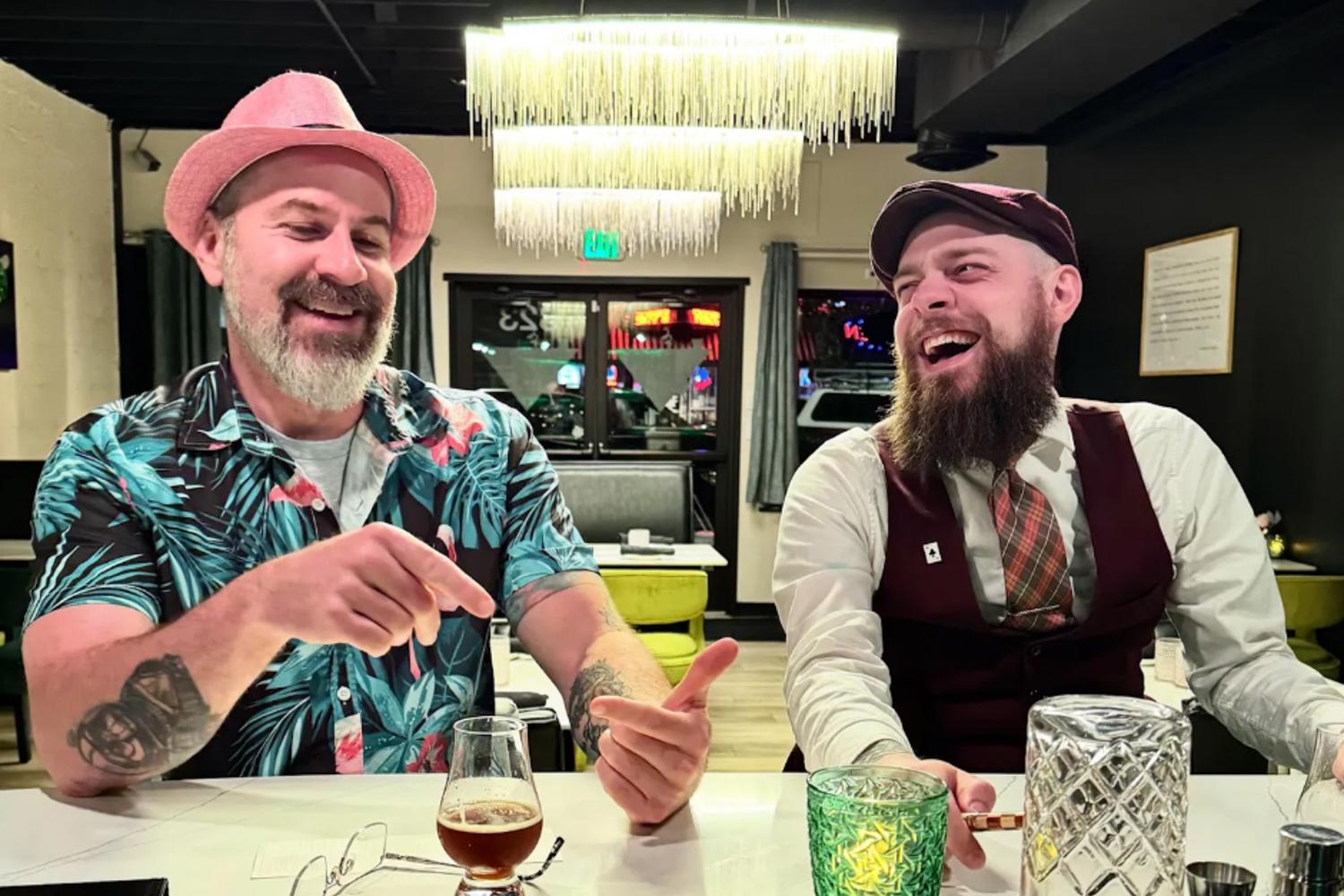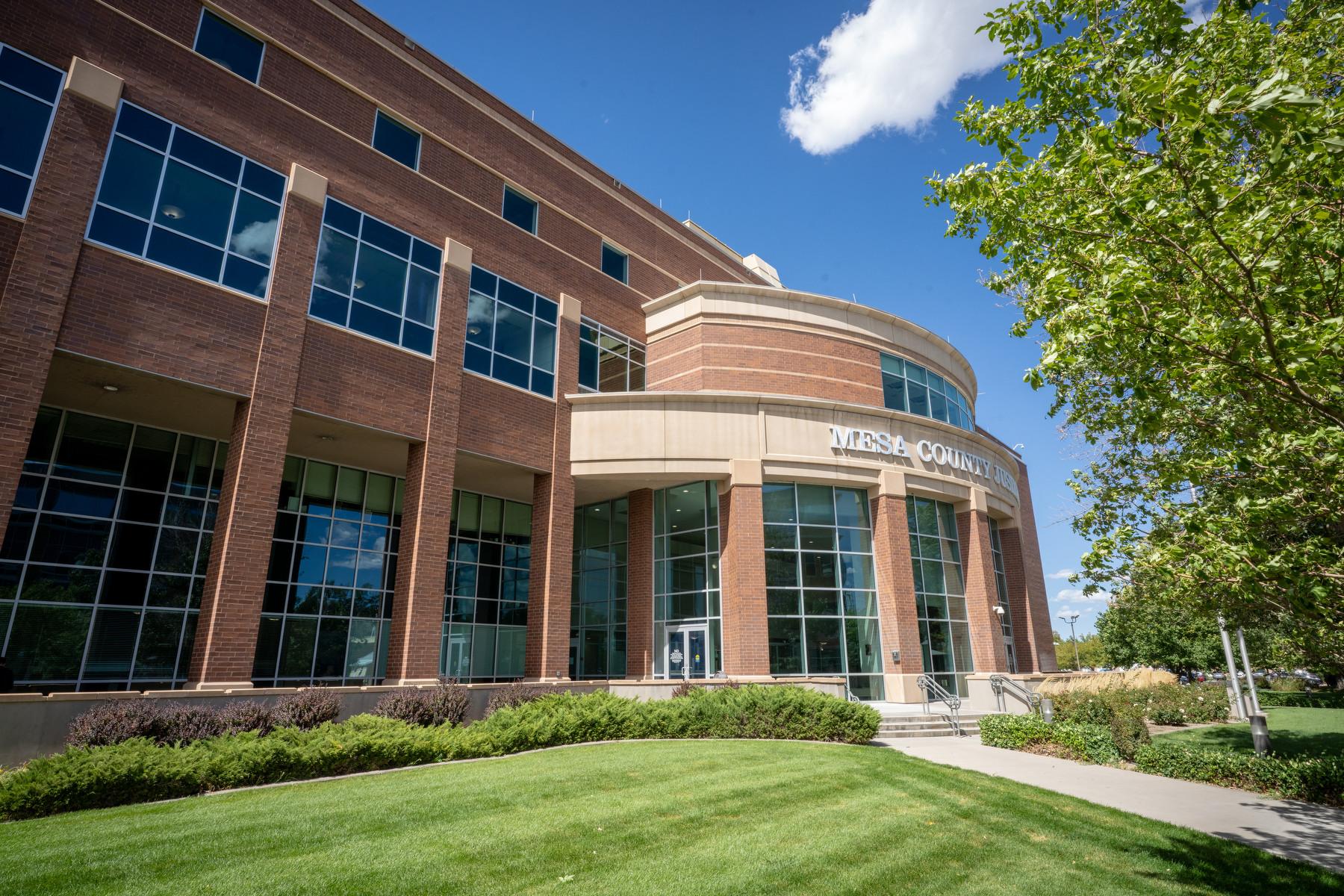
Tiny claw marks crisscross Bob Nightwalker’s arms and hands. He doesn’t mind, though. For him, it’s just another sign of fall.
That's because Nightwalker is a rehabilitator at Greenwood Wildlife Rehabilitation Center in Longmont. Each October brings a rush of squirrels to the center. One of his jobs is to feed the youngest animals with a syringe. Each time, the squirrels dig into his skin with long black nails.
“Everybody’s hands get pretty red and marked up,” he said. “It burns a little when you wash up, but other than that, it’s OK.”
Once they’re stranded on the ground, it’s not hard for the animals to win human hearts. Young squirrels cry when separated from their mothers. The rehab center recommends that people first try to reunite the baby with its mother. But if that doesn’t work, people will often drive squirrels across the Front Range for professional care.
That’s why Greenwood had 141 squirrels as of last week. It’s a final surge in what has already been the busiest season ever at the rehab. The facility had taken in nearly 600 more animals by October 2016 than it had at the same point the previous year.
Executive director Linda Tyler has a simple explanation for the uptick: other major rehab centers have closed on the Front Range. That’s left Greenwood as the only operating rehab center between Colorado Springs and the Wyoming border that treats small mammals, songbirds and waterfowl.

The distinction came gradually to Greenwood. WildKind in Fort Collins shut down in 2012. It was attached to the Larimer County Humane Society, which wanted to focus on domestics like cats and dogs. In 2014, WildBird Rehab in Denver closed due to zoning issues.
Most recently, the state halted operations at Squirrel Creek Wildlife Rescue in Littleton. The loss has left many people on the Front Range unsure of where to turn with injured or orphaned animals.
The Fall of Squirrel Creek
Squirrel Creek Wildlife Rescue in Littleton is a different kind of animal rehab than Greenwood. The rescue shares Squirrel Creek Lodge with Scarlet Ranch — one of the largest swingers’ clubs in the nation.

According to Kendall Seifert, owner of the lodge and the rescue, Scarlet Ranch is a private restaurant and bar for open-minded people. The big difference is that those people can have sex in the basement.
A tour shows the lodge really can serve both swingers and wildlife. The kitchen is split into areas for animal and human food prep. The animal ICU in the basement is set up for 24-hour intakes. Outside, well-built enclosures face a dance stage and rentable cabanas.
The Colorado Division of Parks and Wildlife declined to renew Seifert’s rehabber license last spring, citing over 150 violations. The agency said the rescue kept the animals too long and didn’t release them at the correct locations. Seifert suspects that, in reality, the agency worried he was running a private zoo for swingers.
“Their concern was that we were trying to exhibit the animals because my enclosures were too nice, but that’s what I like to spend my money on.”

The agency raided the facility on March 16, 2016 and claimed to remove 91 animals from the property. Twenty-three were euthanized. The rest were either released or moved to other rehabs.
CPW decline to comment on Seifert specifically for this story because the agency has charged him with 21 crimes, including an attempt to bribe a public officer and the illegal transportation of wildlife.
Jennifer Churchill, a CPW spokeswoman, did explain why her agency regulates rehabbers.
“Our wild animals make their living by being wild and retaining their natural instincts on how to survive in the wild,” Churchill said. “So it's very important that we don't have people keeping animals too long and turning them into pets.”
In addition, CPW wants to be sure that rehabbers offer quality care for animals without spreading diseases to people or other wildlife.
A court date for Seifert is scheduled for November, which some long-time wildlife rehabbers are watching closely. They say CPW is being overzealous, and that strict regulations passed in 2009 have forced many to give up the work.
“It used to be that you send a list of the animals you took care of and then released,” said rehabber Jack Murphy, who is also a friend of Seifert. “Now it is a massive amount of paperwork and a lot of the rehabbers, they just didn't want to deal with it.”
Seifert is fighting the charges and hopes to reestablish his wildlife work. In the meantime, CPW will direct people who want to help injured or orphaned animals to other rehab centers.
If a center isn’t able to take the animal, the agency often offers another suggestion: just let nature take its course.
Back To Nature
The cry of an orphaned squirrel might be a call for help to certain people, but for predators, it’s often a dinner bell.
“Certain animals aren’t going to make it, but they may very well go back into the natural cycle providing food for another animal,” said CPW’s Churchill.
The point marks a sharp division between Parks and Wildlife and the rehabbers it regulates. For the most part, the agency treats wildlife as a set of interacting populations. Often, it's a concern for individual animals -- not overall ecosystems -- that motivates rehabbers.
Linda Tyler at Greenwood Wildlife Rehabilitation Center understands that violence is a built-in part of the natural world, but she doesn’t think that means anyone should deny help to a suffering squirrel.
“Nature takes its course,” she said, making air quotes. “But a lot [of harm] comes from human intervention. We’re encroaching in their territories, we’re in their habitats.”
Moreover, she said wildlife rehab isn’t just about the animals. It’s a human service. Nature includes sentimental people who need a way to help.
So long as that’s true, the staff at Greenwood will have plenty of squirrels to feed and release.
Editor's Note: A previous version of this article stated that Greenwood Wildlife Rehabilitation Center is the only operating rehab center between Colorado Springs and the Wyoming border. It is instead, the only rehab center in that area that can treat small mammals, songbirds and waterfowl. We regret the error.








